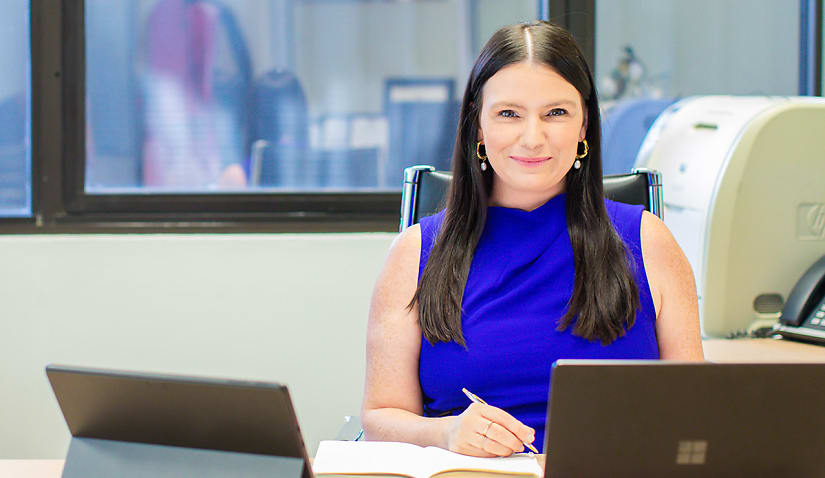This legal academic and law firm owner has created a dual career for herself – and said that, particularly with current advances in technology, legal grads can do whatever they set their minds to.

Mary-Ann de Mestre is an academic at Macquarie University and the founder of M de Mestre Lawyers, which launched this year. Speaking recently on The Protégé Podcast, she reflected on how she manages two vocational careers at once, how she makes it work, and some practical and professional lessons she’s learnt along the way.
Handling all this, Ms de Mestre said, can be “a lot”, but the most important thing is time management.
“I’m a morning person, so at four or 05:00 am, the kids aren’t up; that’s the time when I can make my fresh coffee and dive straight into it uninterrupted. I think it’s also important just to be aware of connections and introductions, so fostering relationships with others,” she explained.
“So just because you may come from, for example, a family of lawyers, it’s about being proactive to try and find people in your area or your profession or where you want to go. And LinkedIn especially is a good example, where there are so many avenues to connect with people who are like-minded and share similar interests and could allow you to connect with them and further your career that way as well.”
In terms of pursuing two vocational careers at one time, Ms de Mestre said that while it is “the best of both worlds”, succession law is a particularly interesting area to practice in and to teach.
“When we think of succession law, we think of death, and we think dark and depressive and emotional. But for me, the ability to provide students with practical and controversial examples help to bring succession law to life. So, if you have a look at some of the content that we post for M de Mestre Lawyers and for the students, we’re looking at technology advances with estate planning.
“So, all of a sudden we’re having an influx of informal wills and electronic wills. The fact that there’s now been the first PDF will signed on an iPad in South Australia. So, I think it’s definitely a space that is exploding with technology, and it’s something where I really like to be able to provide not only that academic historical background but also, through my own profession as a practising solicitor, up-to-date and controversial examples for the students.”
Advances in technology also mean an increased number – and variety – of roles are available for grads.
“The advances with technology at the moment are significant, so I definitely think there are so many opportunities and doors that can open for you if you just look for them. So, take a proactive view and start connecting and reaching out to people, and you never know where that might take you,” Ms de Mestre added.
“The most important thing is being aware of your own capabilities and what time management is, so how much you can fit into your own schedule and your own day. I think if it’s academia that you’re interested in, as well as practising, being able to write and research and have a love for history goes part and parcel with being an academic, and then for being a solicitor, having that client contact and being able to provide that service to your client is important as well.”
Combining education and practising law also means that Ms de Mestre is excited about a wide variety of things moving forward.
“Educationally and professionally, what I can achieve is providing a practical sense to students and also my clients and being able to show them not to be afraid of technology and the advances that we’re having. In respect of the estate planning space, I’m really excited to see what developments will happen over the course of the next few years post-pandemic, especially with the ability to make electronic wills and electronic contracts,” she concluded.
“So, I definitely think it’s a space that we can watch. So that’s what’s motivating me and keeping me down the straight and narrow as to what I can provide to my client.”
The transcript of this podcast episode was slightly edited for publishing purposes. To listen to the full conversation with Mary-Ann de Mestre, click below:

Lauren is the commercial content writer within Momentum Media’s professional services suite, including Lawyers Weekly, Accountants Daily and HR Leader, focusing primarily on commercial and client content, features and ebooks. Prior to joining Lawyers Weekly, she worked as a trade journalist for media and travel industry publications. Born in England, Lauren enjoys trying new bars and restaurants, attending music festivals and travelling.